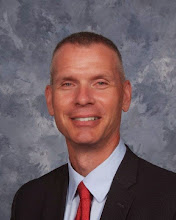Today I want to discuss an initiative that the school district has started. I believe that the school district must position itself to “have a seat at the table” in the virtual learning environment. A virtual learning environment is one where the benefits of being “online” will impact our students and staff. The benefits for education (in my opinion) are twofold. First, the amount of information available for our students and staff on the internet is amazing. Think about when many of us were children. I can remember the encyclopedia salesman coming to our house and my parents purchasing an encyclopedia. My family used this encyclopedia for years to help with school work and to look up information; people now have the ability to “Google” their question and receive thousands of options to look for information not from just one encyclopedia. RASD must allow our students a chance to learn in this type of environment and teach them the skills so they can effectively find information on the internet. Second, a virtual environment allows students and teachers an opportunity to collaborate more effectively. Deeper collaboration occurs when students can communicate with each other in an online format and teachers can monitor and contribute to discussions among students online. I do not believe that a computer can replace the benefits of having a teacher in a classroom. However, a “virtual presence” will allow our teachers to enrich and expand the curriculum and instruction for our students.
With that in mind, Ridgway Area School District has joined
Blendedschools (“blended” comes from the fact that education will become a blending of traditional “brick and mortar” environment with a virtual environment). Blendedschools allows RASD to place our curriculum in a virtual format so it can be accessed online. RASD will use the virtual format that Blendedschools provides to meet short term and long term goals. The school district’s short term goals for Blendedschools are:
1. Provide resources for our teachers to enrich their curricular and instructional repertoire.
2. RASD will use Blendedschools to teach the school district’s alternative education students
3. RASD will offer “credit recovery” for seniors who did not graduate because they failed a class their senior year. This option will start the week of July 5th.
4. Teachers will be able to place their curriculum on Blendedschools enrich the learning experiences for their students.
In the long term, I believe that Blendedschools will allow RASD to position itself to meet the future of education. The importance of an online presence is important for two reasons:
1. Parents are increasingly “shopping” for the best educational opportunities for their children. The impact on public schools is enormous. Public schools must offer educational opportunities that will expand and enrich the student’s educational experiences. In years to come, I believe that location will not be the determining factor about where students will attend school. Rather, parents will place their students in learning environments that they believe will benefit their students the most. A virtual presence puts RASD in that position.
2. RASD wants to provide the best 21st century learning opportunities for students. To me, a 21st century learning environment is one in which the students and teachers are taking advantage of the information available on the internet and the enhanced collaboration opportunities available in a virtual environment.
I hope this makes sense to you. I am really excited about the future of education and what it means for RASD.




























